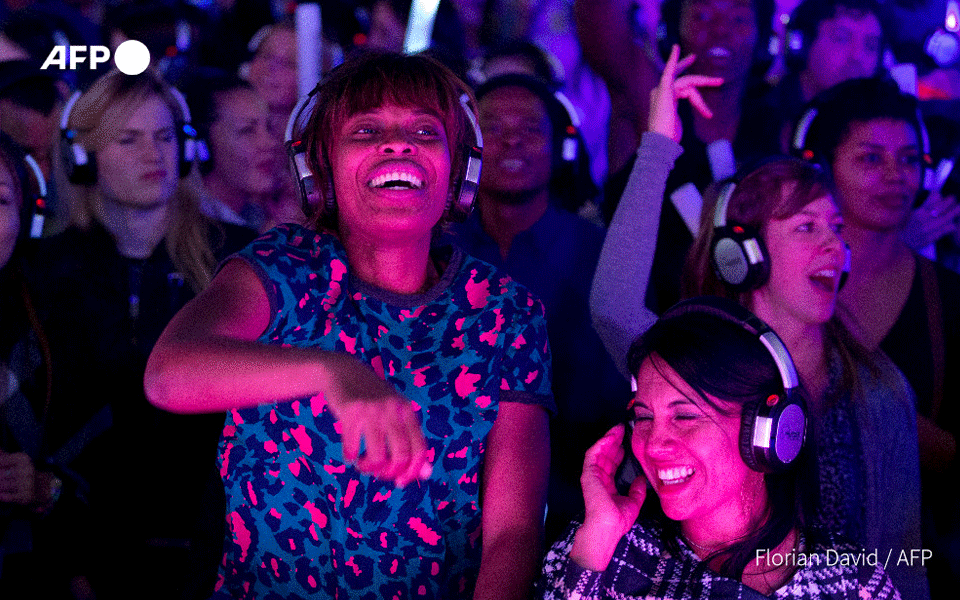Washington (PTI): Over one billion teenagers and young people are potentially at risk of hearing loss due to their use of headphones and earbuds, and attendance at loud music venues, according to a study published in the journal BMJ Global Health.
The international team, including researchers from Medical University of South Carolina, US, noted that the governments around the world need to urgently prioritise "safe listening" policies to safeguard aural health.
"There is an urgent need for governments, industry, and civil society to prioritise global hearing loss prevention by promoting safe listening practices," the authors of the study said.
The World Health Organization (WHO) estimates that over 430 million people worldwide currently have disabling hearing loss, the researchers said.
Young people are particularly vulnerable because of their use of personal listening devices (PLDs), such as smartphones, headphones and earbuds, and attendance at loud music venues, amid poor regulatory enforcement, they said.
Previously published research suggests that PLD users often choose volumes as high as 105 decibel (dB) while average sound levels at entertainment venues range from 104 to 112 dB.
This far exceeds the permissible sound levels of 80 dB for adults and 75 dB for children even if for very short periods of time.
The researchers gauged the prevalence of unsafe listening practices among teens and young adults to create a global estimate of the numbers who could therefore be at risk of hearing loss.
They trawled research databases for relevant studies published in English, French, Spanish and Russian, involving 12-34 year-olds, and reporting on objectively measured device output levels and length of exposure.
The research included 33 studies, corresponding to data from 35 records and 19,046 participants. 17 records focused on PLD use and 18 focused on loud entertainment venues.
The researchers also estimated the number of people who could be at risk of hearing loss by considering the estimated global population of 12-34 year-olds in 2022 (2.8 billion) and the best estimates of exposure to unsafe listening practices from PLDs or loud entertainment venues.
The research indicates that the prevalence of unsafe listening practices from PLD use and attendance at loud entertainment venues is common worldwide -- 24 per cent and 48 per cent, respectively, among teens and young people.
The researchers estimate that the global number of teens and young adults who could potentially be at risk of hearing loss as a result ranges from 0.67 to 1.35 billion.
Let the Truth be known. If you read VB and like VB, please be a VB Supporter and Help us deliver the Truth to one and all.
Ottawa (PTI): Three Indian nationals have been arrested by Canadian police on an anti-extortion patrol and charged after bullets were fired at a home.
Harjot Singh (21), Taranveer Singh (19) and Dayajeet Singh Billing (21) face one count each of discharging a firearm, and all have been remanded in custody until Thursday, the Surrey Police Service (SPS) said in a statement on Monday.
The suspects were arrested by patrol officers after an early morning report of shots fired and a small fire outside a home in Surrey's Crescent Beach neighbourhood, the LakelandToday reported.
On February 1, 2026, the SPS members were patrolling in Surrey’s Crescent Beach neighbourhood when reports came in of shots being fired and a small fire outside a residence near Crescent Road and 132 Street.
The three accused were arrested by SPS officers a short time later, the statement said.
SPS’s Major Crime Section took over the investigation, and the three men have now been charged with Criminal Code offences, it said.
All three have been charged with one count each of discharging a firearm into a place contrary to section 244.2(1)(a) of the Criminal Code.
The investigation is ongoing, and additional charges may be forthcoming. All three have been remanded in custody until February 5, 2026.
The SPS has confirmed they are all foreign nationals and has engaged the Canada Border Services Agency, it said.
One of the suspects suffered injuries, including two black eyes, the media report said.
Surrey police Staff Sgt. Lindsey Houghton said on Monday that the suspect had refused to comply with instructions to get out of the ride-share vehicle and started to "actively resist."
"As we were trained, he was taken to the ground and safely handcuffed," said Houghton.
A second suspect with a black eye was also injured in the arrest after refusing to comply, Houghton said.
The arresting officers were part of Project Assurance, an initiative that patrols neighbourhoods that have been targeted by extortion violence.
Houghton said the Canada Border Services Agency (CBSA) is also involved because the men are foreign nationals, and the trio may face additional charges.
It's not clear if the men are in the country on tourist visas, a study permit, or a work permit, but Houghton said CBSA has started its own investigation into the men's status.
Surrey has seen a number of shootings at homes and businesses over the last several months, but there's been an escalation since the new year.





